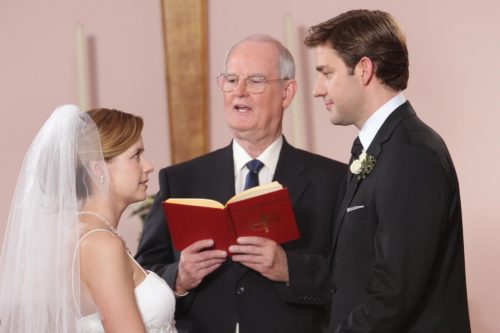
Like many people, for the past few days I have wrestled with what to make of the (too) well documented evening that a woman had with actor/comedian/writer Aziz Ansari. If you are living under a rock, a woman called “Grace” (hell of a pseudonym), had what she called the worst night of her life with Ansari.

Needless to say, “Grace” has received a massive wave of critique. People are demanding to know why she stayed when she was uncomfortable and how she could possibly classify the evening as sexual assault. Perhaps the most upsetting critique is that everyone wants to know why “Grace” did not simply stick up for herself. Obviously, she did not feel like she could.
In addition to the 3000 word pornographic (and super awkward) descriptions of the evening, there was a scathing critique of Ansari that I found naive and ridiculous:
“Most people first saw Aziz when he was Tom Haverford, a Parks and Rec fan favorite whose absurd, hilarious phrases were made to be memed. Who hasn’t said “treat yo’ self” once or twice? At that time, he branded himself as the witty, woke alternative to the stereotypical douchebag bro. His early 2010s routines paint him as the kind of guy who strikes out because he actually respects women.”
I know I sound like the world’s worst feminist when I suggest that we cannot hang out naked in a guy’s apartment if we are not interested in coitus. But what exactly are we hoping for here? That mythical male figure who deeply loves and admires women and doesn’t see undressing as a cue that sex is about to happen? Laydeez, those men do exist. But they are on Will and Grace not Parks and Rec.

Opinions are all over the place. As is the norm in our world of sides, you are either Team Aziz or Team “Grace.” And I mean this very pastorally, but I think I must be Team Whatthehelldidyouexpectsexisabigdeal.
We can blame Ansari. We can blame “Grace.” But since this story is neither unusual or going away, I’m wondering if we should quit the self-justification joy ride and just blame ourselves. There’s a lingering voice in the back of my head that wonders if men and women are actually getting worse, sexually speaking. In a culture where pornography and the sexualization of the female form are considered “normal” practices, it occurs to me that I have never had a date like “Grace” had with Ansari. Pornography is all about men getting what they want and women being the vehicle by which that happens. I wonder if Ansari has seen enough of it to expect the same, and women like “Grace” are simply trying to keep up with expectations. While this is incredibly worrisome, it is not my primary concern.
In all of the articles I’ve read, I have yet to see anything that names the primary issue: People who do not know one another should not be having sex. To be clear, I am not interested in having the no-sex-before-marriage conversation. I was raised by Christian people who never talked about sex that way with me. If anything, they were into the save-yourself-for-college model. (Perhaps because they knew too many people for whom the promise-ring model had led to teen pregnancy. But that’s a separate post.)
My parents emphasized that sex came with grave consequences. My mother once said, “If you get pregnant then we all get pregnant. Daddy gets pregnant. I get pregnant. Your little brother gets pregnant. Even the dogs get pregnant.” The vision of my third grade brother being with child kept me from engaging in some pretty hot and heavy situations. It was funny but the message was quite clear: There are lifetime consequences to doing this the wrong way.
They also told me sex was special and to be done with someone I truly loved. Just that sentiment alone saved me from a tremendous amount of heartache.

In Elizabeth Bruenig’s piece for The Washington Post (which we talk about on The Mockingcast this week), “The Aziz Ansari Debacle Proves it’s Time for a New Sexual Revolution,” she dances with the sex is special elephant in the room. She writes about how one of the goals of the sexual revolution was to make sex just another activity that humans engaged in. But, Bruenig points out:
Instead, we ought to appreciate that sex is a domain so intimate and personal that more harm can be done than in most social situations, and that given that heightened capacity for harm, we should expect people to operate with greater conscientiousness, concern and care in that domain than in others. If you are still hanging around your tired host’s home long after the party is over, excuse yourself and leave — don’t wait for them to order you out or call the police. If you are kissing someone and they’re barely responsive — if they say, as Ansari’s partner did, “I don’t want to feel forced because then I’ll hate you, and I’d rather not hate you” — then get their coat for them and call it a night. Ansari didn’t commit a crime. But cruelty isn’t restricted to criminal acts. In all domains of life, but especially where it comes to sex, we must insist that people consider one another’s interior lives, feelings, personhood, dignity.
While I appreciated where Bruenig was headed, I begin to wonder about her landing. How are we to consider the interior lives of people we hardly know? Especially when we have made the bold move of disrobing with one another before we’ve shared anything real about ourselves? If we really wanted Aziz Ansari to consider this woman’s dignity, then he would have had to have been on enough dates with her to read her body language. And if we had wanted “Grace” to be authentic to his feelings, she might have left Ansari alone the moment he initially rejected her.
It is a lot to expect of this “New Sexual Revolution.” Of course, we are nothing without a high anthropology and judgement of our fellow human beings. Even though Bruenig does not clearly state the obvious, this level of knowing one another, actually requires us to get to know one another.
In our grand age of communication, there is very little time dedicated to this goal. Social media, texting, and emojis are used to express some of the more challenging and intimate details of life. “Grace” did what a lot of people do. She assumed she knew Ansari even though she did not know him at all. She really only knew him through a screen. And then she got naked with him and he made her feel awful.
Among a laundry list of other issues, it is the rapidity of intimacy that should make us uncomfortable. In the Babe article, “Grace” explains that she is simply looking for someone to love her. And while I do read ‘groping and insistent’ into Aziz’s behavior that evening, I also read ‘desperate and lonely.’ While it may have been the worst night of her life, this also must have been the saddest night for both of them. Especially in retrospect.
There will be plenty of Christian articles that will use this opportunity as a finger wagging moment to remind us all that “True Love Waits.” As you can see, this is not one of them. But I do begin to wonder what constitutes Secular Sin. Assault is clearly wrong. But leaping into bed out of sheer misguided loneliness is apparently not. “Grace” and Aziz plunged into the depths of their own needs expecting to come out as more fulfilled people. They manifested sin and expected Kingdom results.
“Grace” and Ansari walked into the chapel of lovemaking with no love in sight and very little to make of one another. And when they came out disenchanted, they seem surprised.
Sex with a stranger is strange sex indeed. Yet having sex anytime, anywhere, with anyone has become sacred in our secular culture. While it is certainly not God-given, we worship it nonetheless.
From the Book of Acts, chapter 17, verse 22:
When St. Paul visited with the people of Athens he greeted them by saying, “People of Athens! I see that you are extremely religious in every respect. For as I was passing through and observing the objects of your worship, I even found an altar on which was inscribed: ‘To an Unknown God.’

COMMENTS
12 responses to “Turns Out Sex Is Still a Big Deal”
Leave a Reply













Amazing insight!!!!
At last somebody getting down to the real problems of sexual permissiveness.
What on earth does that Acts quote have to do with any of this? You have presented a “non-religious” account of sexuality that seems to be deeply ideological. Why do that? It’s just really not needed.
Learning to ask that first question humbly will surprise you wonderfully.
Because like the Athenians, whether we like it or not, a religious ethic of right and wrong permeates our culture. This article is filled with great insights.
oh, yes: there may be the 62 year old male view up on this too: “unintended consequences” are a hallmark of self-justification…
Unintended consequences are real, no matter what your age or gender. I doubt that S. Paul had any idea how the religious movement he was spreading would become an excuse abusing the weak, or those who believe they are weak. One of his intended consequences is that people should realise that love takes a while to bloom and the truth about people takes time to get to know. Love that is come by quickly and easily is surely an “unknown god.”
Wow! You captured what really is, so well. Thanks for this post.